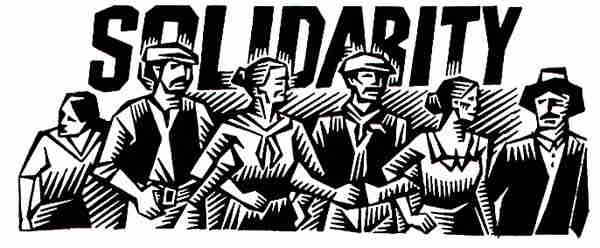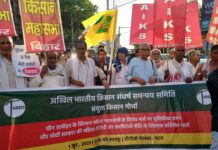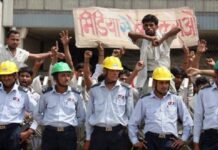The recent farmers movement has established itself as a definitive movement in history against corporate control and authoritarian state systems. While this is a movement led by farmers, farmers’ and trade unions, solidarities have been extended to the movement across various sectors. In Tamil Nadu, specifically, coverage on farmers protests has been low as compared to farmers from Punjab and Haryana. There is often a misunderstanding that these laws don’t affect the farmers of the state, and that this is merely an issue for farmers from Punjab and Haryana. However, there have been a number of protests and critical voices coming from the state, that mark the farmers’ protests are a country wide issue.

speaking to Gauri Lankesh News, Scholar Dr M Naganathan from Chennai, he mentions how there is a complete devaluation of institutions that govern the country. Identification of these institutional failures now falls on activists, scholars, unions, opposition parties, etc. He considers information to be a key instrument in such a failure of democracy in the country. The constant withholding of data with respect to the legislation, funding, and implementation of schemes of the government creates a very dangerous trend in the Indian system. “The implementation of these bills is not a democratic method; they’re utilising the pandemic now and the lock-down”; this lack of information in the age of the pandemic allows for quick, speedy and most importantly undemocratic forms of legislation, where the people are not consulted.
Naganathan explained, “There is a devaluation of the justice system, devaluation of the press system, devaluation of the parliamentary system; this is a crucial stage, which needs to be tackled by all right minded people, across political parties to fight against authoritarianism”.
Also read: No Decision on NRC Enforcement Nationwide: Home Ministry

T.M Krishna, a Carnatic vocalist, activist, and writer based in Tamil Nadu, drives this point further when he mentions how the laws negate the farmer in the first place. “You can’t bring in laws without consulting the farmer in the first place, the process becomes undemocratic”. This process of prioritising corporate interest rather than the farmers, then runs the risk of being normalised. In extending this to the importance of solidarities, we find that to constantly challenge such a normalisation, voices of opposition from the marginalised need to be bolstered; this is where the power of solidarities lie ultimately.
Also read: Centre Refuses to Compensate Families of Farmers Who Died in the Protests
Krishna, on speaking on the nature of solidarities that have been extended to the protests, mentions how people have been more vocal in the case of the farmers’ protests. He however, is cautious about congratulating this, as it is unclear whether this support will be sustained over a long period of time. “ We can’t keep remembering the farmer only, when the farmer dies or when he screams; this goes for people from the liberal world and all empowered citizens of the country.” This is an important point, as it highlights how many urban educated upper class and upper caste subjects, have only paid attention and extended support to marginalised folk, when they have been subject to atrocities or grave circumstances; this shows a convenience elite classes have with the image of poor, non-agential marginalised folk.
Krishna’s hope is that support is sustained even after these protests, and stresses on the importance of sustained care of the people, in transforming the plight of those affected. He reiterates this idea of caring as being essential, when he talks about the world of classical art-forms. “ These circles rarely engage in issues of politics, and this is primarily because they come from elite upper class, upper caste backgrounds”. They are quite insulated in this way, creating an art form that is heavily divorced from reality.
Opposition parties in the state have also been vocal against the laws, and in support of the farmers protests. Many have been involved in organising protests all over the state such as hunger strikes, and tractor rallies. MK Stalin, President of the Dravida Munnetra Kazhagam (DMK) has been an active critic of the laws, calling them “anti-people”. Stalin has also criticised the haste with which the BJP and All India Anna Dravida Munnetra Kazhagam (AIADMK) has passed these laws, and mentions how a similar trend of law making has taken place in the place of the Environmental Impact Assessment (EIA) 2020, and the labour reforms passed earlier in 2020.
Other parties such as Viduthalai Chiruthaigal Katchi (VCK), Left Parties and Congress have also been vocal in their opposition to the laws, and have organised protests in the state. Just recently, VCK cadres organized a protest against the laws, near Anna Statue in Chennai. VCK also participated in tractor rallies that were carried out in a number of districts on the 26th January. VCK leader Thol. Thirumavalavan has been continually vocal in critiquing the Central government. In a tweet on January 26th, he says, “This Farmers Struggle is a Revolution which will shock the world. People’s war can never be trampled upon through oppression.”





























